The Last of the Zungars - Alexander Geins, 1865
Translation of a reflection on the fate of empires
Preliminary note: For Gmail readers, this essay might be clipped due to size limitations. To read the entire essay simply click on “View entire message” at the bottom of the email, thanks.
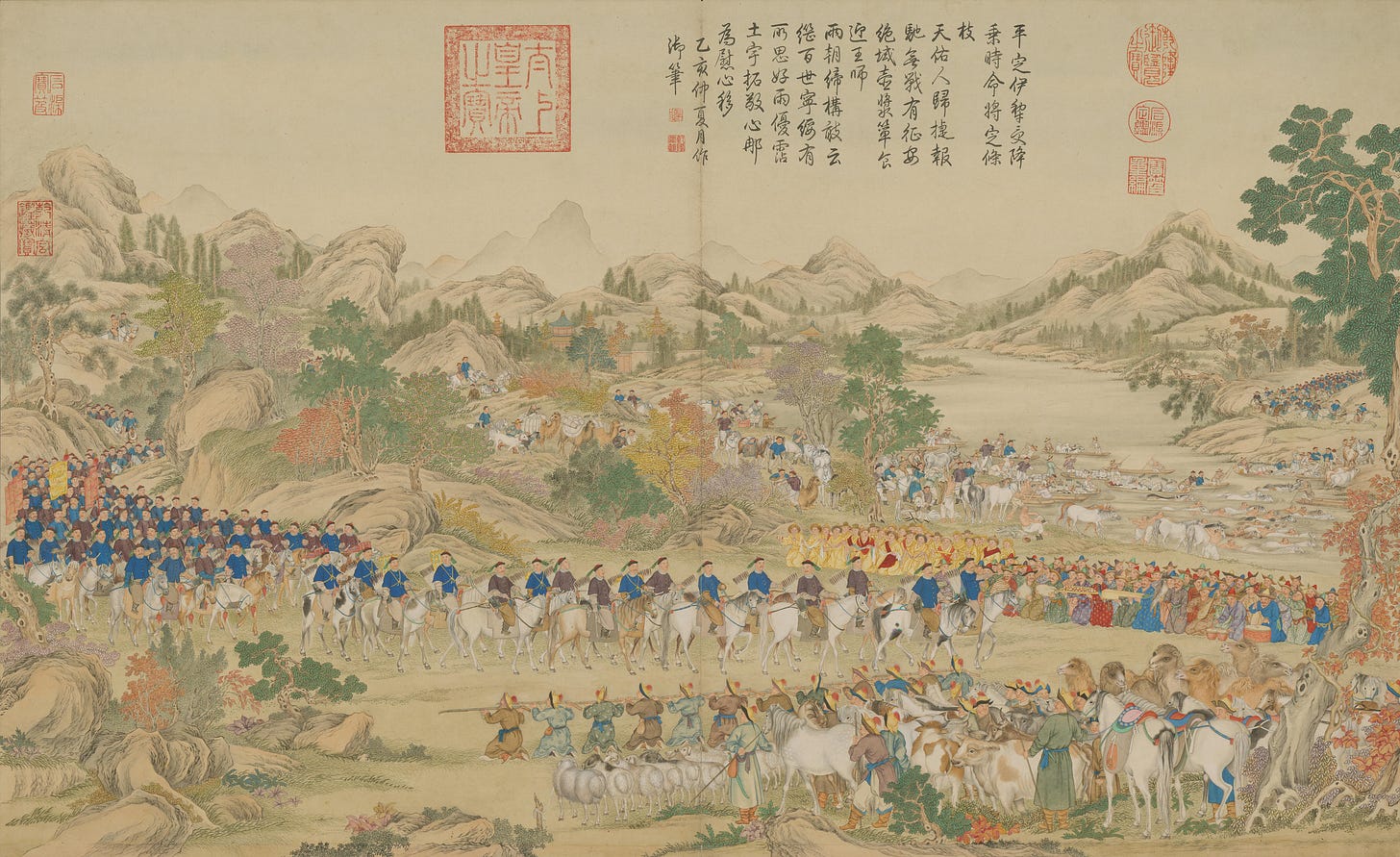
Translator’s Introduction
Below is a translation of an excerpt from Alexander Konstantinovich Geins’ “Дневник 1865 года. Путешествие по Киргизским степям” (Diary 1865. Journey Across the Kyrgyz Steppes).Geins was a Russian military officer who served in the Crimean War and participated in the defense of Sevastopol, where he suffered a concussion and eye damage. Later, he joined the Russian armies during their conquest of Central Asia, and wrote a travelogue acclaimed for its geographical and ethnographical observations. The original text in full can be found here. The source for this translation can be found here.
The photos below are from Carl Mannerheim’s expedition to China in 1906-1908. Mannerheim was a Finnish officer in the Russian Empire, and later become the leader of independent Finland. The sources of the photos can be found here, here and here.
In this excerpt Geins writes about his encounter with a convoy of Zungar refugees near modern day Almaty in south eastern Kazakhstan. The Zungars were a powerful Mongolian empire that ruled the steppes of Inner Asia in the 17th and 18th centuries. They had their origins among the Oirats, or western Mongols, who themselves were a product of the collapse of the Mongolian Empire and its subsequent successor states. The core of the Zungar state were the steppes located between the Altai and Tianshan mountains, and what the height of the Zungar’s power their empire stretched from central Mongolia in the east, to Tashkent and the central Kazakh steppes in the west, up to the Siberian forests in the north and Tibet in the south.
The rise of the Zungars coincided with the rise of the Manchu led Qing Dynasty in China. The Zungars and Qing soon came into conflict over who would lead the Mongolian tribes located between them. Meanwhile in the north, Russian progressively expanded throughout Siberia and began conquering the Zungar’s fur paying vassal tribes. As time went on, the nomadic Zungars were unable to compete with the modernizing Russian and Qing empires, who were increasingly adopting firearms and artillery. In the end, a succession crisis broke in the late 1740’s that gave the Qing the opportunity to finish off the Zungars for good. The Zungars had been particularly aggressive and unwilling to concede defeat, so ultimately the Qing emperor chose to massacre all of them in the so called “Zungar Genocide.” Some Zungar refugees managed to escape and reach Russia. These refugees were either resettled with the Kalmyks in the west, some converted to Christianity, adopted Russian customs and were settled in south Siberia, and others continued to nomadize as Russian vassals.
A note on the term Kalmyk. In the early 1600’s a large element of Oirat Mongols migrated to the steppes south of the Volga River, near the former city of Stalingrad. These Oirats became Russian vassals. Thus, the Russians tended to call all Oirat Mongols as Kalmyks as a generic ethnonym. Moreover, some of these Kalmyks in the 1770’s decided to migrate back to their initial homeland, and submit to the Qing Dynasty. These Kalmyks became became a part of the forces the Qing Dynasty used to guard its Central Asian frontiers.
The Fate of Empires
25th November. We had packed and prepared for the road. The weather was still good. The peaks of the mountains were visible in all of their curious beauty. The mountains from their base to the peaks were entirely covered in white snow, with dark pine trees protruding forth. I did not explore all of the stanitsas1 that make up Verny2 due to a lack of time, and postponed this inspection until the next year. Today I went to the artillery depot and saw the guns that were captured from Kokand3 near Pishpek4 and Uzu-Agach.5
Today we meet a most honorable elder of the Kalmyks. One of them had held the rank of a Chinese colonel. These are savages in the fullest meaning of the word, and little that is sensible can be achieved with them. However, the commander of the Altyn—Imel detachment, horse artillery lieutenant Reintal, who introduced the Kalmyks to us, said that the entire Kalmyk army would be approaching Almaty tomorrow, and that he would redirect them from the country road to the postal road so that we could see them as they passed by.
26th November. We left quite late. About 5 verstas6 from Verny we encountered the advanced guard of the Kalmyks, who were in a hollow that had a small stream flowed through.7 Right away the Cossacks, who were escorting the Kalmyks, were commanded by Reintal lined up in our honor and saluted us with their swords and pikes.8 The Kalmyk elders curtsied us in the Chinese way, nearly to the ground. They were dressed in Chinese robes. On one side a long braid of dirty black hair dangled, and stuffed behind their belts was a Chinese pipe. The Kalmyks are unbelievably unkempt, while the Kyrgyz9 standing near them looked comparably civilized by the cleanliness of the faces, hands, and clothing. Yet, the dirtiness of the adult Kalmyks did give any idea as to the dirtiness of their children. They were like clumps of dirty scampering along the ground in rags. Almost all of them had permanent wounds on their upper lips due to the filth from the noses. The ugly, squat women differed from the men only in their greater ugliness, who were more unkempt and had two braids that were dirtier and longer than the men’s. These braid hanged in front of their heads. Fake hair was woven within them, seemingly in order to lengthen the braid, and at the very end hung a think pendant that was also woven into their hair. These pendants are very similarly woven into their hair as how a is plume woven into a cap. On the women’s’ ears many beads could be seen, which were also used to make necklaces and bracelets. The women also all smoked. Reintal explained that they all smoked, except for the female children who are not allowed to smoke before they are married, “so that their hearts would not become soft”.
The Kalmyks now brought complaints to us that one among them had stolen two horses from their comrade. Peintal explained this if it had not been for the Russians, they would have condemned him to death long ago. Having listened to the complaints by the Kalmyks, we proposed that both sides select biys,10 whose judgment would decide the affair. They started organizing the biy court, and we went to observe this strange picture of a people setting up camp for the night.
Above the floor the gradually rising valley the high Alatau Mountains were visible, shining brightly white. Here, in the hollow, the crows of dirty people huddled around, bustling around the bodies of their horses. A skinny cow was roaming around, a dog was barking, from the children came wild screaming as they rolled on the ground, and all were skinny, hungry, dirty, dirty beyond description.
The deadly fate of the ill-fated Kalmyks! Everyone had tormented them thoroughly: the Chinese, Russians, Kyrgyz,11 and now the Kyrgyz again with the Dungans.12 From the Oirat state, which had such a meaning in Middle Asia, this wreckage was barely able to drag its feet forward due to cold and tiredness! What a difference from the time of Galdan-Tseren!...13 Now they were within sight of Almaty as fugitives, accepted out of mercy, all while the location of Almaty, or Verny, a little bit more than a hundred years ago was where Galdan-Tseren wintered!...
We began to give small pieces of silver to the children. The ugly monkeys fell before us on to their knees, probably doing what the Chinese had taught them.
Meanwhile, the biys had come to their judgment. Both sides made peace. The one who had said his horses were stolen dropped his claims.
“God willing, he will have son-in-laws from him”, said the translator, indicating to the one who was said to be a thief.
“For what purpose?”
“He is giving me his daughter for peace.”
Regardless of what is said, Russia offers many services by moving civilization further and further into Asia. Someday an impartial historian will give a real price to the great historical purpose of Russia, which it carries out better and more intelligently than how manages itself internally. Where the iron feet of Russia has established itself, baranta14 is made impossible, which in Asia is simply called war, and likewise the resettlement of entire tribes, those who have abandoned and endured everything just to save their own lives and those of their children has been made impossible.
Wasn’t it in such a way that the resettlement of peoples was done in the middle ages?…
Cossack settlements
Modern day Almaty
The former Khanate of Kokand, based in the Fergana, controlled the steppes to the north of the Tianshan Mountains
Modern day Bishkek, capital of Kyrgyzstan
About 50km to the west of Almaty
Old Russian unit of measurement. 1 versta = 1.0668 kilometer/3,500 feet
I left out this part of the sentence: “, разбивающих свои коши около лога”. I have no idea what “коши” are
Original says “выкинули нам коленцо шашками и пиками”
Actually Kazakhs. Kazakhs were typically called Kyrgyz up until the Soviet period
Men who would serve the role as judge and would resolve disputes among nomads
Actually Kazakhs, who were called Kyrgyz up until the Soviet era
Han Chinese Muslims, known in China as Hui
Zungar leader from 1727-1745. The succession struggle after his death tore the Zungar state a part
Turkic word for cattle theft, similar to cattle rustling in the American West






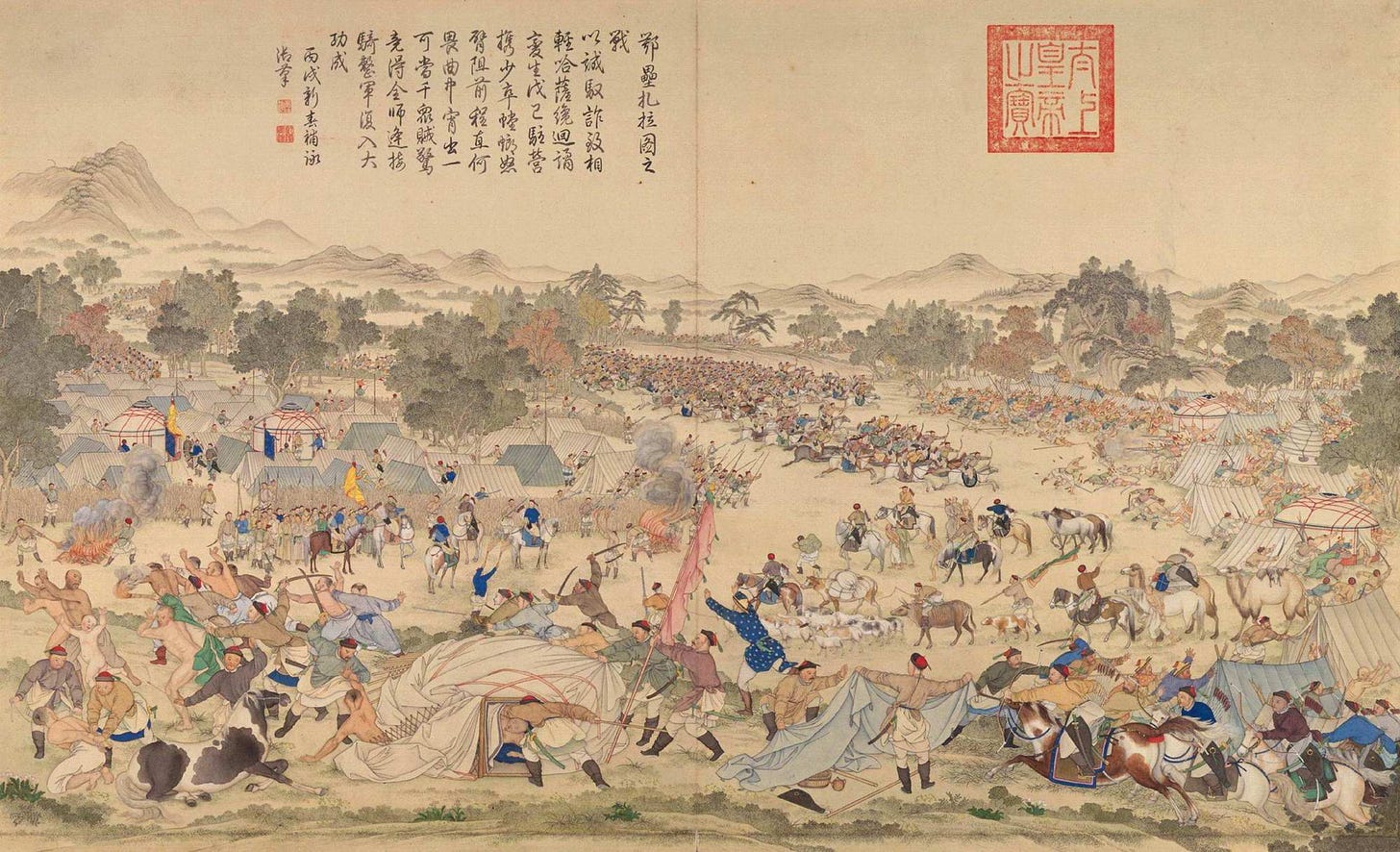
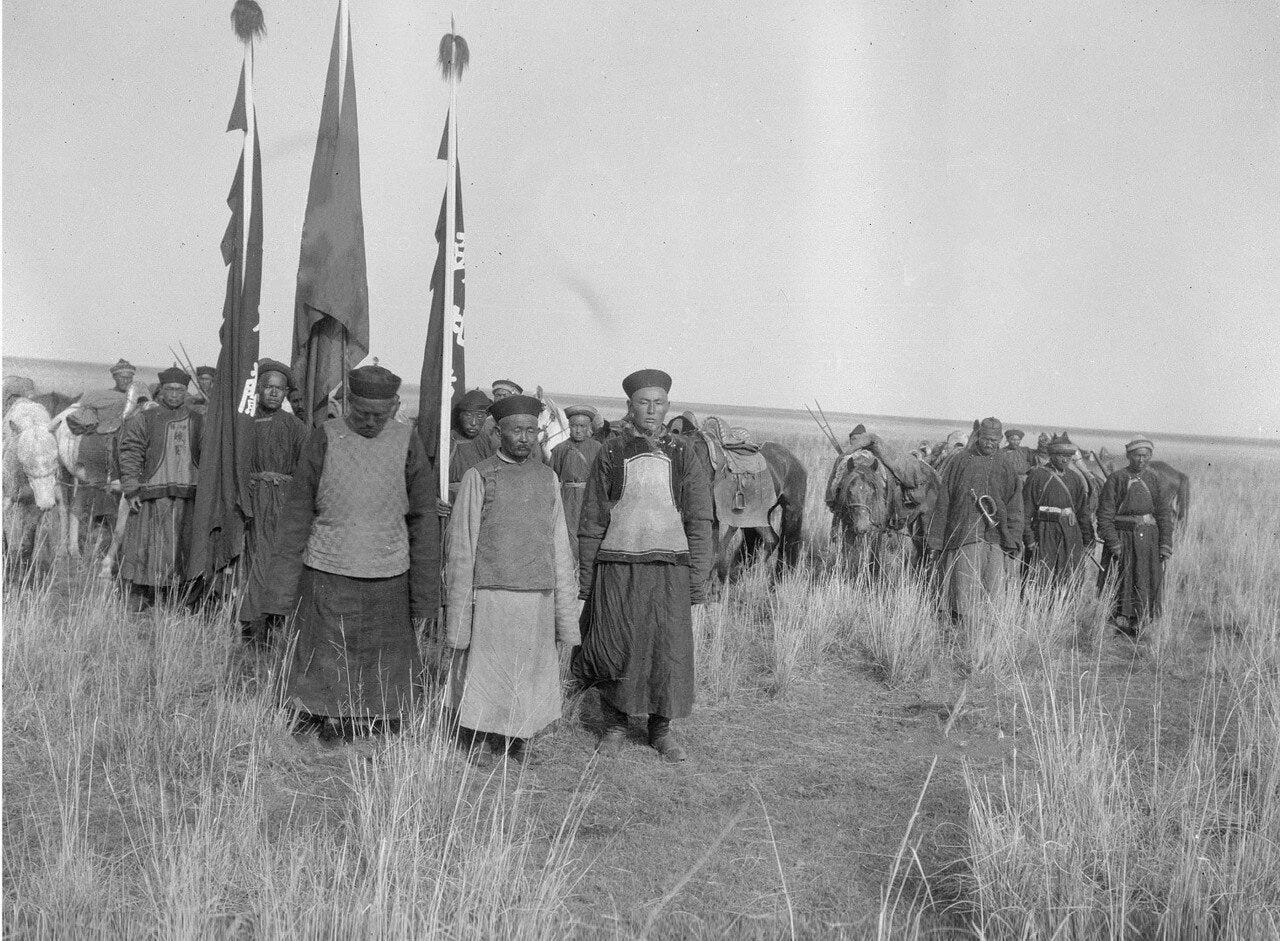
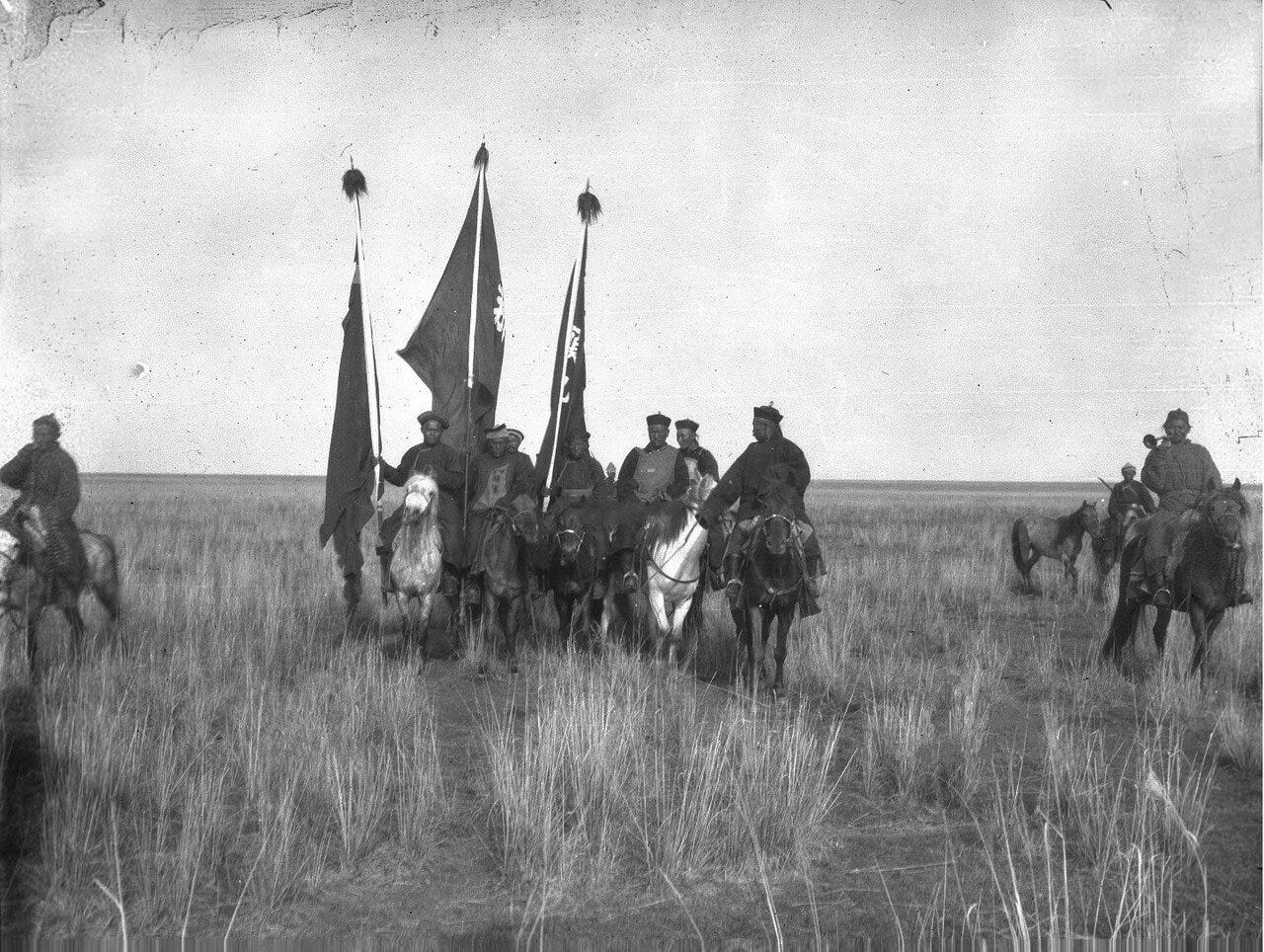
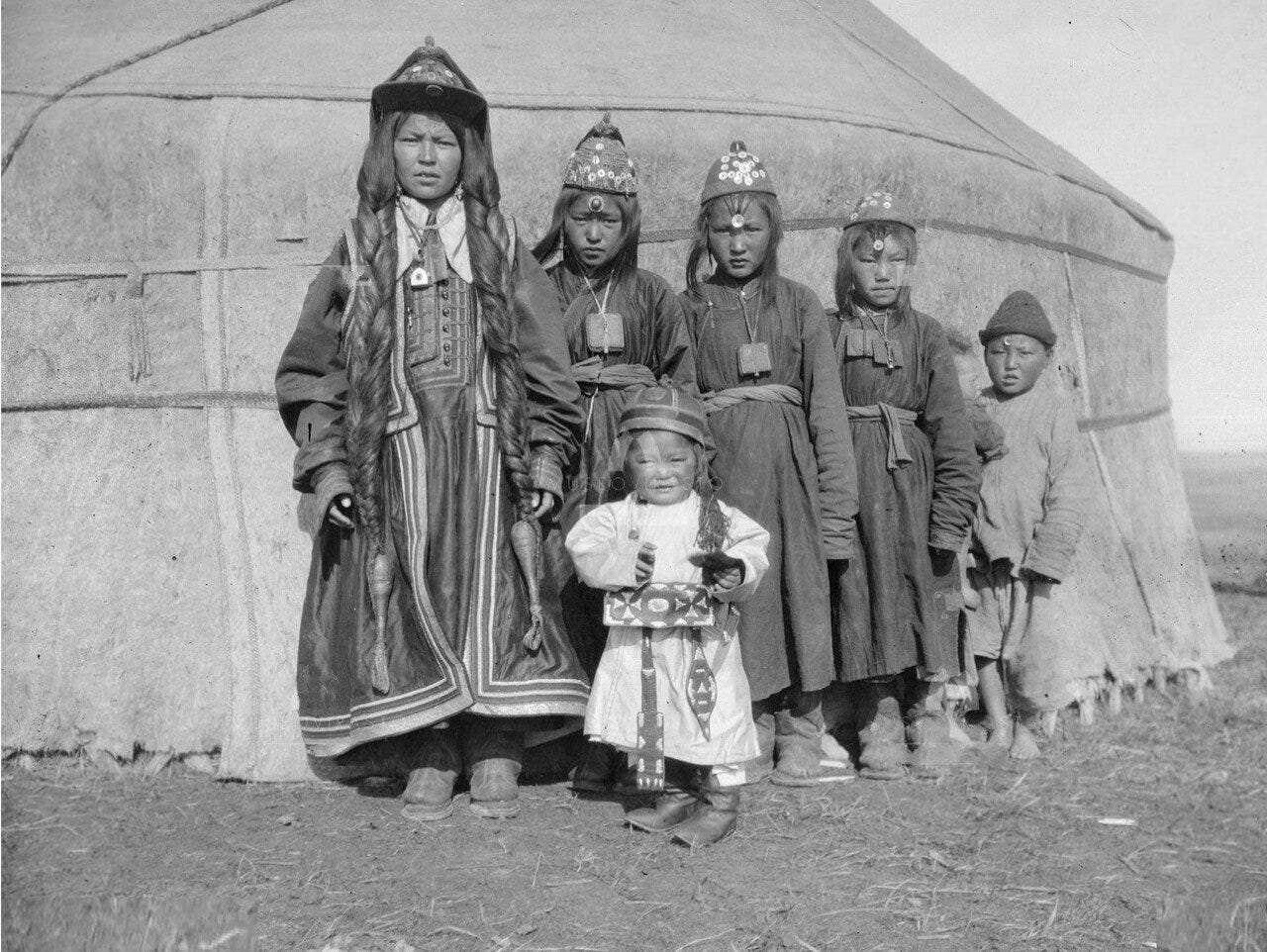
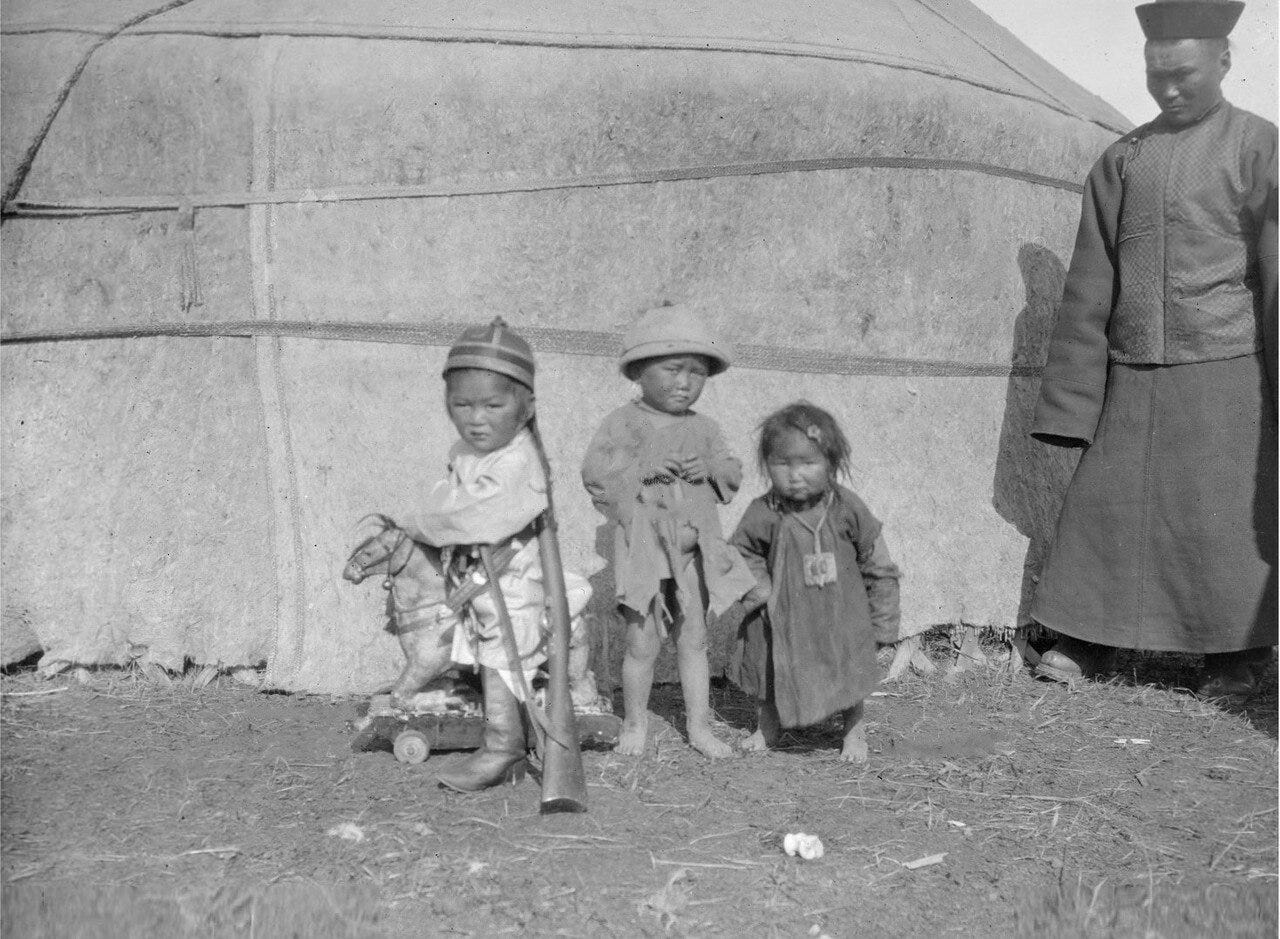

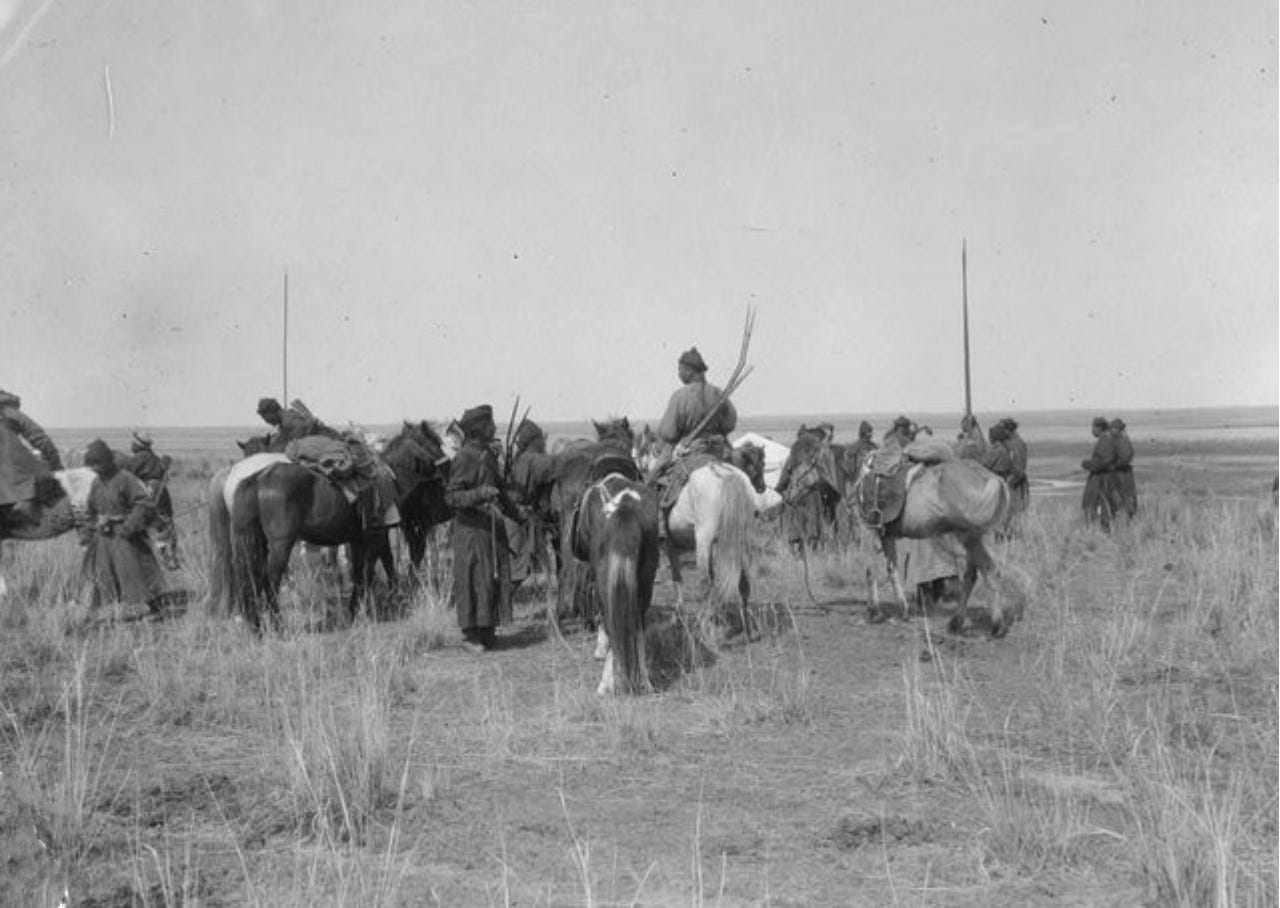
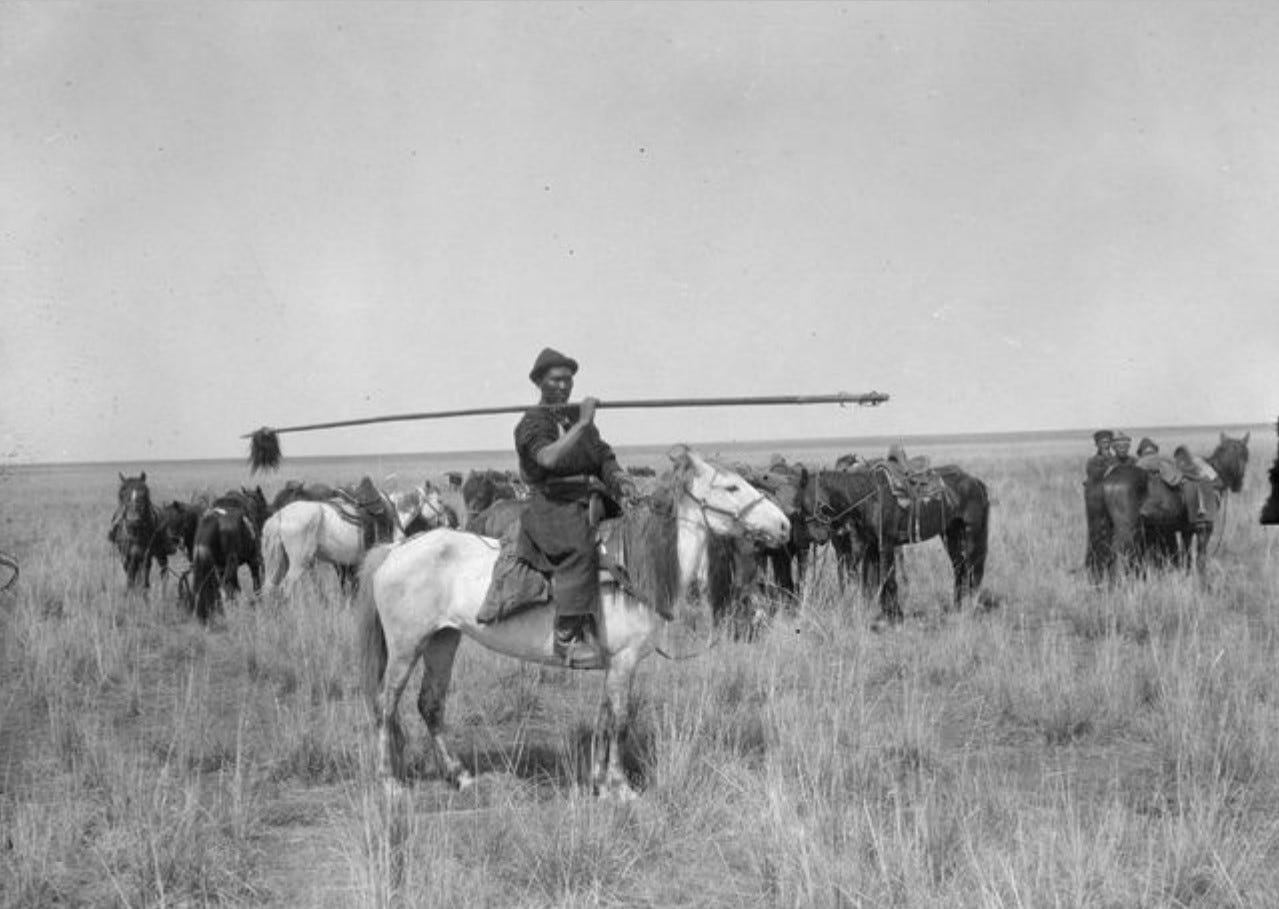
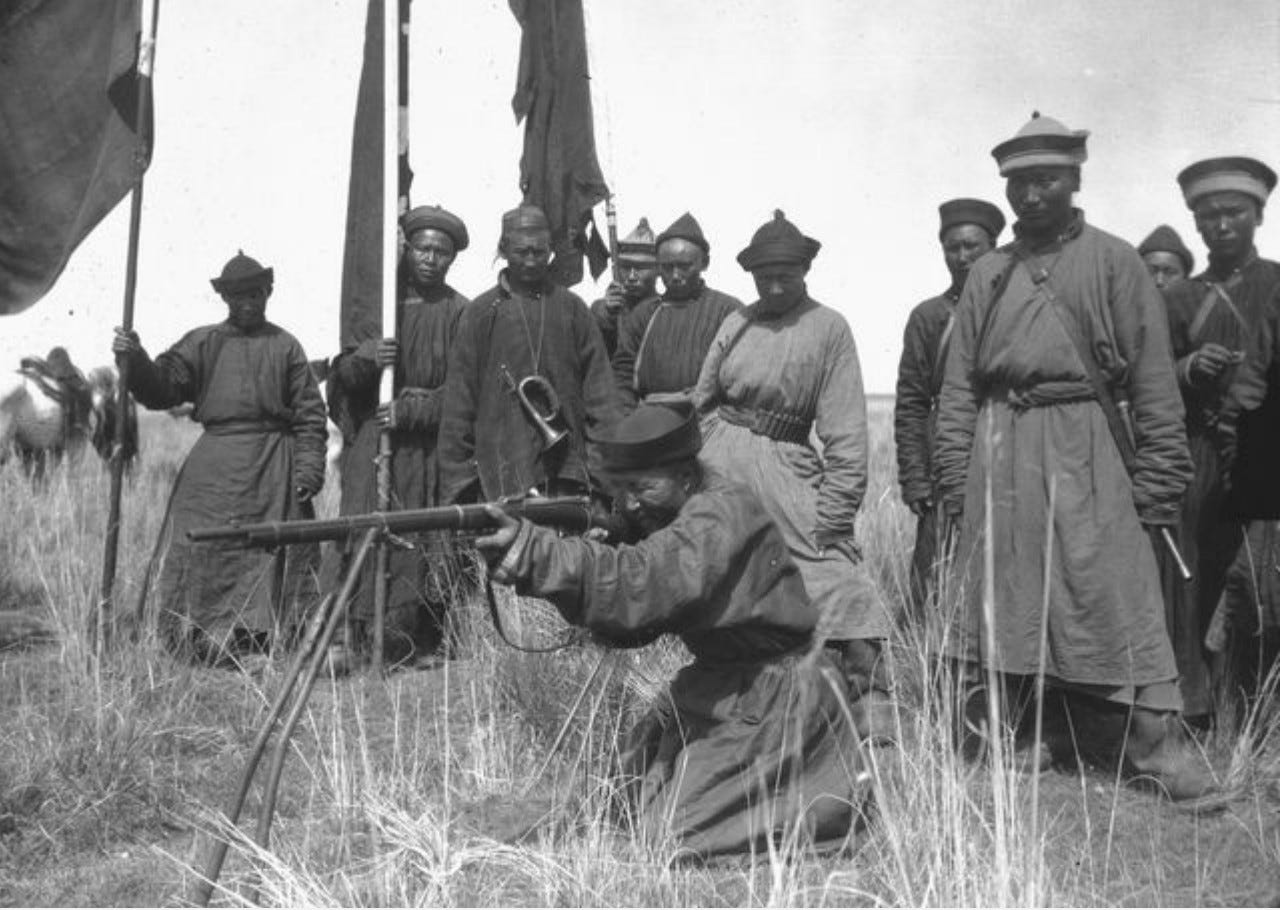
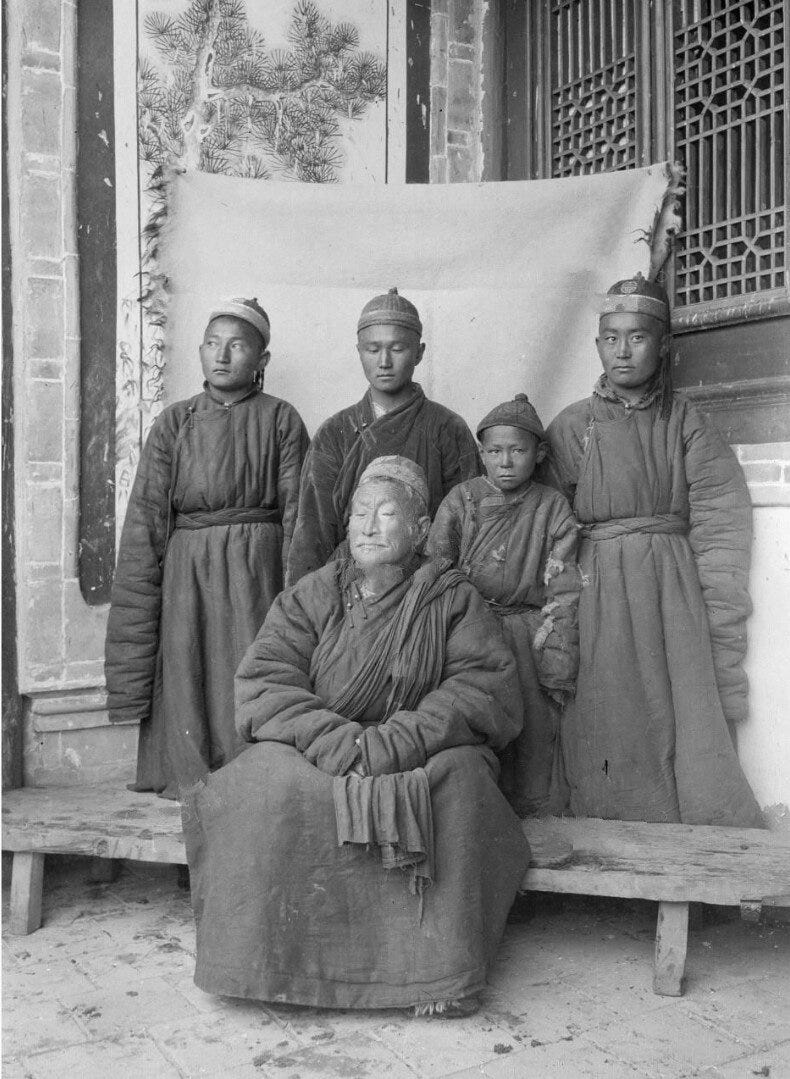
By the way, I asked a friend about what “коши” are and she said this:
я не нашла значение слова "коши", но вероятно это палатки (что-то похожее на палатки), потому что, например, туристы разбивают палатки (разбивать - открывать, раскладывать). Калмыки кочевники, поэтому скорее всего они разбивали палатки возле широкого оврага. Это не очень распространённая лексика.
кош - это лагерь
I always thought the Kalmyks were such a anomaly given that they are the only Buddhist nation in their part of the world. Then again the more I learn about history the foggier the line between East
and West seems to become.